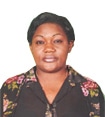
Cameroon Experiences Internet Outage
Gladys Ambo
Douala, Cameroon - Dec 2007
Until 1992 mass media in Cameroon was mainly by way of traditional channels i.e. press, radio and television; research was usually conducted in libraries. e-mail and on-line news feeds were certainly not the order of the day.
Some Cameroonians can now better appreciate the importance of internet services in their daily lives due to difficulties in accessing the resource for about two weeks this November (2007). The breakdown placed many in a difficult position, especially those whose main means of communication is via email.
Cameroon like many African countries e.g. Nigeria, Angola, South Africa and Equatorial Guinea heavily rely on the SAT3 underwater link for internet access. A technical fault in the SAT3 fibre optic terminal brought internet access to a halt throughout the country.
During the two week internet outage, discussions amongst the general populace about the situation were commonplace. Students, teachers, business persons, ‘Cyber Café’ owners etc were all worried. Julius Fonking, manager of a cyber café in Douala described how tense the atmosphere was. We lost about 50.000 FCFA each day even though we had people waiting to use our services. It was a very worrying time.
Sheybou a local business man revealed that the problem cost him dearly. He disclosed it is far cheaper to communicate with his business partners abroad via the internet rather than over the phone and that in about three days he had spent more than triple what he would normally spend on communications costs for a week while using the internet.
The situation amongst students and teachers was equally dire. Apart from being unable to communicate with friends, two weeks without the ability to conduct valuable research felt like an eternity. This was the case with a ‘Masters’ student of the University of Douala who said he felt like a smoker or a drinker who was being deprived of their cigarettes or alcohol.
He couldn’t imagine what his thesis would look like if Cameroon was not reconnected since three quarters of his research is conducted via the internet. He confessed that there was information he could only obtain via the internet since his school libraries and local bookshops did not have the materials he needed for his research.
Even secondary school children were expressing their frustrations, likewise so were their teachers. Mr Asah Chinjo Nathaniel, a teacher with over 17 years experience opined that when you don’t have or cannot get something, you may seek out an alternative, however, when you have it but are then deprived of it, this can be very frustrating.
He prayed that the same situation would not repeat itself because more Cameroonians are becoming computer literate and depend on internet access for information and as a means of communication.
Officials of the Cameroon Telecommunications Company CAMTEL which is the main internet provider had expressed their concerns but were equally optimistic that all was going to be fine.
Thankfully the system is now operational again.
